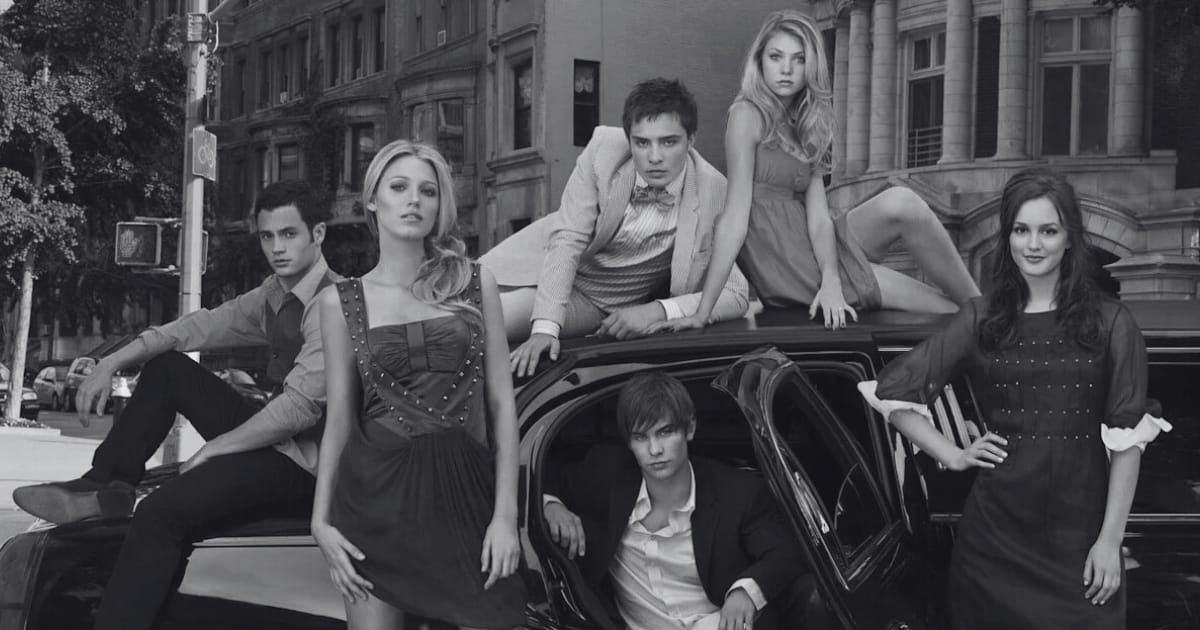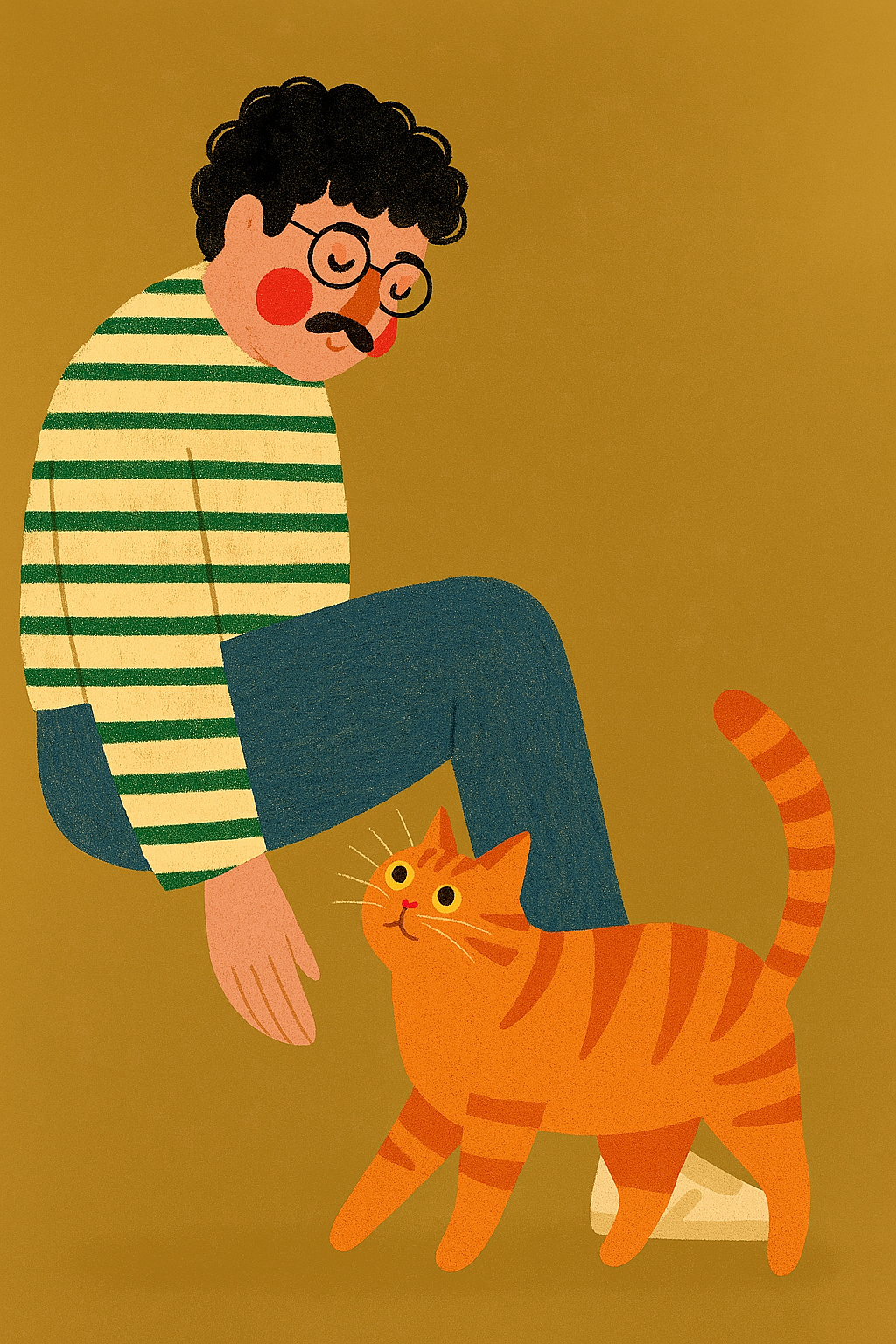Let’s be honest—mid-2000s teen dramas weren’t just about pop-punk soundtracks and questionable hair choices (though those were also deeply formative). They were about money. Power. Emotional abandonment in a designer coat. And most of all? They were about dads who were either never there, or way too there.
These shows didn’t teach us how to drive. They taught us that capitalism is soul-crushing, the rich are emotionally bankrupt, and no amount of beachfront property or penthouse access can replace a hug from your emotionally distant father.
The OC: One Sandy Cohen Away From Collapse
"Welcome to the OC, bitch." — Luke, Season 1
Ryan Atwood wasn’t just a troubled teen from Chino. He was a working-class Trojan horse smuggled into the gated utopia of Newport Beach. The OC wasn’t subtle: it wanted you to notice the cultural clash. Ryan's hoodie next to Summer's Chanel. The Cohens' liberal guilt housed in a McMansion.
And then there’s Sandy. Our surf-bro public defender with a moral compass so loud it practically yelled over the indie soundtrack. Sandy Cohen is what happens when a dad actually shows up. Which is probably why every other dad on the show was a cautionary tale.
Jimmy Cooper? Financial fraud. Caleb Nichol? Corporate sociopath. Ryan's biological dad? A walking parole violation.
The OC made it clear: having money doesn't mean you have values. And if you do have both? Congrats, you’re probably Sandy Cohen. Or dead.
Gossip Girl: Daddy Bought You a Blog and You Still Have No Soul
"You're nobody until you're talked about." — Gossip Girl
Gossip Girl was marketed as sexy, scandalous, and aspirational. But at its core? It’s a Marxist fever dream. The ruling class eating itself alive via brunch, betrayal, and Blackberrys.
Serena was born rich and wanted to be good. Dan was born scrappy and wanted to be relevant. Blair just wanted controlbecause her dad left and her mum was too busy monetising the patriarchy to notice.
Let’s not forget Chuck Bass, the human embodiment of a red flag. Rich. Reckless. Deeply broken. His defining trait? Daddy issues so profound they could've had their own spin-off.
Bart Bass wasn’t a father. He was a capitalistic cautionary tale with a trench coat collection.
And Rufus? Dan’s Brooklyn-dwelling, Lincoln Hawk-fronting, floppy-haired dad? He was supposed to be the moral compass but still somehow raised the world’s most insufferable narcissist. Go figure.
Veronica Mars: Working Class with a Trust Fund’s Rage
"You want to know how I lost my virginity? So do I." — Veronica, Season 1
Veronica Mars was never just a high school noir. It was a full-blown class war in a zip-up hoodie. Neptune was a town divided—rich 09ers and everyone else, and Veronica stood smack in the middle with a stun gun and a grudge.
Her dad, Keith Mars, was the Sandy Cohen for people who preferred sarcasm to surfing. A fallen sheriff turned private eye, Keith wasn’t perfect—but he was there. Honest. Protective. Fully prepared to burn bridges if it meant keeping Veronica safe.
Meanwhile, the Echolls family was a case study in generational rot. Logan was hot, haunted, and held together with quips and trauma. His dad, Aaron? TV star. Abuser. Murderer. It’s almost like wealth doesn’t come with morals, huh?
Veronica’s whole existence was a pushback against privilege. She didn’t want to join them. She wanted to expose them. Which, in teen TV? Basically class warfare with better hair.
Me: Watching From the Middle Class Mezzanine
If you were watching these shows from a two-bedroom rental with a Holden Commodore in the driveway, you weren’t rooting for the rich kids. You were studying them.
I didn’t want to be Serena van der Woodsen. I wanted to understand how someone could self-destruct in a $6,000 dress while being adored for it. I wanted to know why Ryan couldn’t stop trying to fix people. Why Blair kept looking for her dad in emotionally unavailable men. Why Veronica was so angry all the time—and why that felt like truth.
The fantasy wasn’t the money. It was the drama. The chaos. The emotionally charged breakfasts and sharp one-liners delivered through perfect hair. But underneath the melodrama? These shows were telling the truth:
Money protects, but it doesn’t save you. Fathers leave, literally or emotionally. And sometimes the person who understands you best is the one throwing rocks at your moral glasshouse.
Mid-2000s teen dramas weren’t escapism. They were prep school lessons in class warfare and inherited emotional damage. And honestly? I took notes.
I never met my father. Grew up in a working-class house with budget-brand cereal and a single mum who never got to be soft. So yeah, maybe I watched a little too closely when these characters tried (and mostly failed) to make sense of love, loyalty, and abandonment under the glare of chandeliers and criminally expensive lighting. Maybe I didn’t want what they had—but I needed to understand it.
Because when your own story feels like a blank space, sometimes the only thing you can do is study someone else’s and try to read between the lines.
Turns out, I wasn’t watching for the fantasy. I was watching for the fault lines.
Also #EatTheRich.
Keep scrolling through the glitch: @glitchesinthegaydar.

